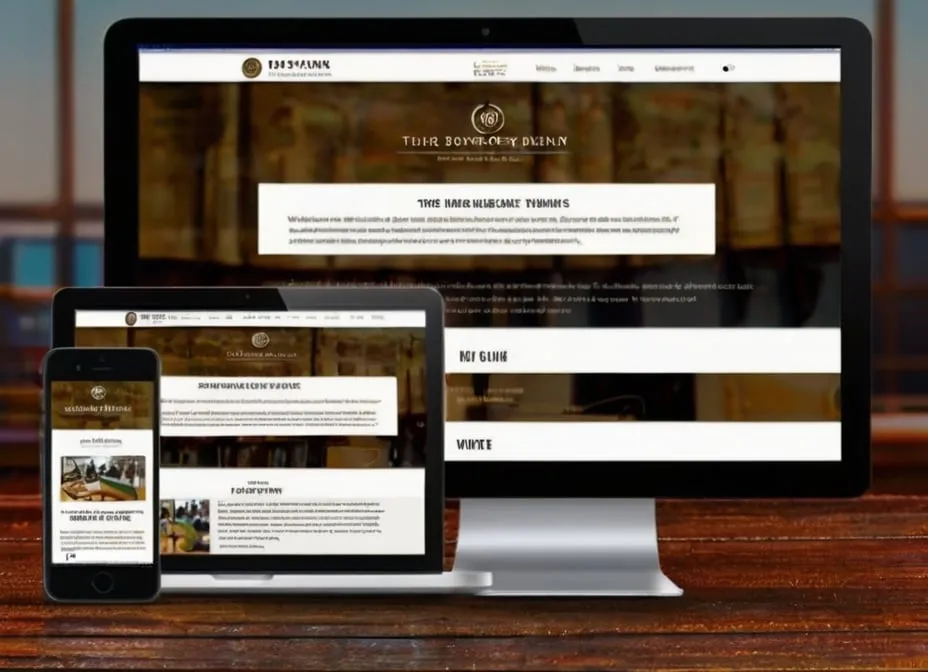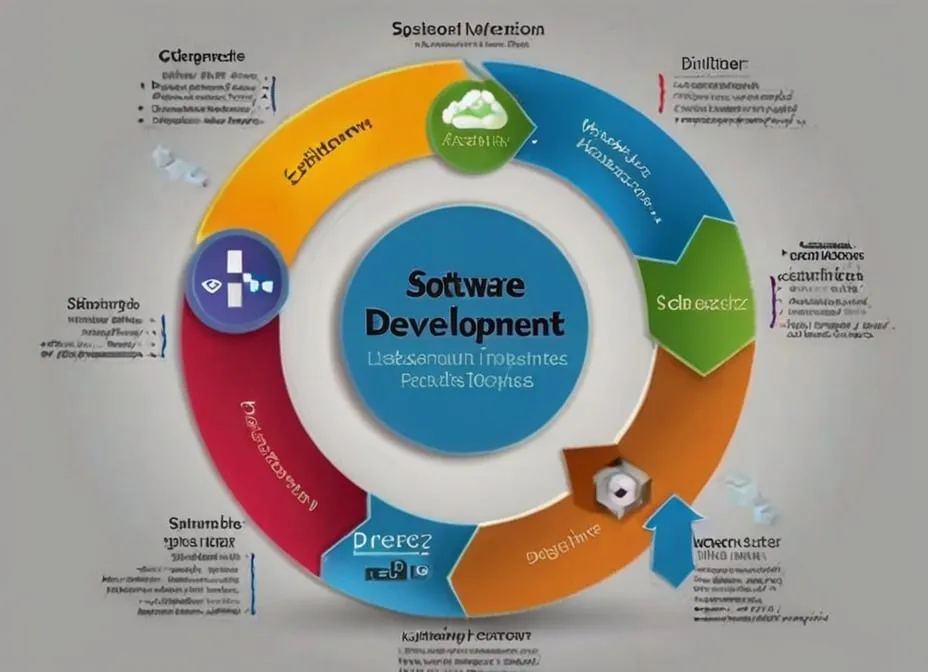Build a Personal Brand Online: Attract Clients & Grow Your Audience

1. Understanding Personal Branding
1.1 What is a Personal Brand?
In the ever-evolving digital landscape, a personal brand has become a powerful asset. It's the unique combination of your skills, values, personality, and image that sets you apart from others in your field. Your personal brand is your professional identity, and it's what people associate with you and your work.
1.2 Why is Personal Branding Important?
In today's competitive job market and entrepreneurial ecosystem, a strong personal brand can open doors to new opportunities. It helps you stand out, build credibility, and attract clients or employers who align with your values and expertise. Whether you're a freelancer, entrepreneur, or career professional, a well-crafted personal brand can make a significant difference in your success.
1.3 Benefits of a Strong Personal Brand
A strong personal brand offers numerous benefits, including:
- Increased visibility: By consistently showcasing your unique talents and value proposition, you become more visible and recognizable in your industry.
- Credibility and trust: A solid personal brand establishes you as an authority in your field, fostering trust and credibility with potential clients or employers.
- Career opportunities: A well-defined personal brand can lead to new job prospects, freelance gigs, or business partnerships that align with your goals and values.
- Competitive advantage: In a crowded market, a strong personal brand sets you apart from competitors, making you more appealing to potential clients or employers.
- Networking and connections: Your personal brand can attract like-minded individuals, influencers, and potential collaborators, expanding your professional network.
1.4 Identifying Your Unique Value Proposition
Before you can build a powerful personal brand, you need to identify what makes you unique. Ask yourself these questions:
- What are your core strengths, skills, and expertise?
- What values and passions drive you?
- How do you solve problems or provide solutions in your field?
- What sets you apart from others in your industry?
Answering these questions will help you define your unique value proposition – the compelling reason why someone should choose to work with you or follow your brand.
2. Defining Your Brand Identity
2.1 Discovering Your Passions and Strengths
Your passions and strengths are the foundation of your personal brand. Take some time to reflect on the activities, subjects, or causes that energize and excite you. What are you naturally good at? What skills or knowledge have you developed over time?
To identify your passions and strengths, consider:
- Asking for feedback from friends, colleagues, or mentors
- Reflecting on past achievements or projects you enjoyed
- Taking personality or strength-finder assessments
- Analyzing compliments or praise you've received
Once you've identified your passions and strengths, you can start to craft a brand that aligns with and highlights these aspects of your authentic self.
2.2 Identifying Your Target Audience
Who are the people or businesses you want to attract with your personal brand? Defining your target audience is crucial for crafting messaging and content that resonates with them.
Consider factors such as:
- Demographics (age, gender, location, income level)
- Industry or profession
- Interests, pain points, or challenges
- Values and lifestyle
The more specific you can be in identifying your target audience, the easier it will be to tailor your brand and content to their needs and preferences.
2.3 Developing Your Brand Messaging
Your brand messaging is the language and tone you use to communicate your value proposition and connect with your target audience. It should be consistent across all platforms and touchpoints.
When developing your brand messaging, consider:
- Your unique selling proposition (what makes you different)
- Your brand personality (e.g., friendly, professional, witty)
- Your brand voice and tone (how you communicate)
- Your brand tagline or elevator pitch
Your brand messaging should be clear, compelling, and aligned with your target audience's needs and desires.
2.4 Choosing Your Brand Elements
Your brand elements are the visual and auditory components that reinforce your brand identity. These include:
- Logo and color palette
- Typography and font choices
- Photography and imagery style
- Video and audio branding (e.g., intro music, voice-over)
- Brand tagline or slogan
Consistency is key when it comes to your brand elements. They should be cohesive and recognizable across all your platforms and materials, from your website to your social media profiles and business cards.
3. Building an Online Presence
3.1 Creating a Professional Website
In today's digital age, having a professional website is essential for establishing your personal brand online. Your website is often the first touchpoint for potential clients, employers, or followers, so it's crucial to make a great first impression.
When creating your website, consider:
- Using a clean, modern design that reflects your brand
- Including an "About" page that tells your story and showcases your expertise
- Featuring your portfolio, services, or products
- Integrating a blog or resource section for valuable content
- Optimizing for search engines (SEO) and mobile responsiveness
Your website should be user-friendly, visually appealing, and provide a seamless experience for visitors.
3.2 Leveraging Social Media Platforms
Social media platforms are powerful tools for building and promoting your personal brand. They allow you to connect with your target audience, share valuable content, and engage with your community.
When leveraging social media, consider:
- Choosing the platforms most relevant to your industry and target audience
- Creating a consistent brand presence across all platforms
- Sharing a mix of valuable content, personal insights, and industry updates
- Engaging with your followers and building relationships
- Using relevant hashtags and joining relevant communities or groups
Consistency and authenticity are key when building your social media presence. Share content that aligns with your brand and provides value to your audience.
3.3 Blogging and Content Creation
Creating high-quality content is crucial for establishing yourself as an authority in your field and attracting your target audience. A blog or content hub on your website can be an excellent platform for sharing your expertise and insights.
When creating content, consider:
- Identifying topics and keywords relevant to your audience
- Providing valuable, actionable information or solutions
- Incorporating multimedia elements (e.g., videos, infographics, podcasts)
- Optimizing your content for search engines (SEO)
- Promoting your content through social media and email marketing
Consistent, high-quality content can help you build credibility, establish thought leadership, and attract potential clients or opportunities.
3.4 Networking and Collaborations
Building relationships and collaborating with others in your industry can be a powerful way to amplify your personal brand. These connections can lead to new opportunities, cross-promotion, and increased visibility.
When networking and collaborating, consider:
- Attending industry events, conferences, or local meetups
- Participating in online communities or forums related to your field
- Collaborating on projects, podcasts, or guest blog posts
- Reaching out to influencers or thought leaders for potential partnerships
- Offering to speak, present, or teach at relevant events or workshops
Building a strong network and fostering meaningful collaborations can help you expand your reach and establish yourself as a respected voice in your industry.
4. Promoting Your Brand
4.1 Search Engine Optimization (SEO) Strategies
Optimizing your online presence for search engines can help ensure that your personal brand is easily discoverable by your target audience. By implementing effective SEO strategies, you can increase your visibility and attract more potential clients or opportunities.
When optimizing for search engines, consider:
- Conducting keyword research to identify relevant search terms
- Optimizing your website and content for those keywords
- Building high-quality backlinks from reputable sources
- Utilizing on-page SEO best practices (e.g., meta tags, headings, alt text)
- Leveraging local SEO tactics if targeting a specific geographic area
Consistent SEO efforts can improve your online visibility and make it easier for your target audience to find and engage with your personal brand.
4.2 Content Marketing Tactics
Content marketing is an effective way to promote your personal brand, attract your target audience, and establish yourself as an authority in your field. By creating and sharing valuable, relevant content, you can build trust, credibility, and engagement with your audience.
When implementing content marketing tactics, consider:
- Developing a content strategy and editorial calendar
- Repurposing content across multiple platforms (e.g., blog, social media, email)
- Utilizing multimedia formats (e.g., videos, podcasts, infographics)
- Partnering with influencers or guest contributors for increased reach
- Analyzing and optimizing your content performance
Consistently delivering high-quality, engaging content can help you build a loyal following, attract new potential clients or opportunities, and solidify your personal brand.
4.3 Social Media Promotion
Social media platforms offer a powerful way to promote your personal brand and connect with your target audience. By leveraging social media effectively, you can increase your visibility, engage with your community, and drive traffic to your website or other online assets.
When promoting your brand on social media, consider:
- Identifying the platforms most relevant to your target audience
- Crafting a social media content strategy and posting a schedule
- Utilizing hashtags, mentions, and targeted advertising
- Engaging with your audience through comments, shares, and interactions
- Collaborating with influencers or running social media contests or giveaways
Consistent social media promotion can help you build a strong online presence, foster relationships with your audience, and amplify your personal brand's reach.
4.4 Influencer Outreach and Collaborations
Partnering with influencers or industry leaders can be an effective way to promote your personal brand and tap into new audiences. Collaborations can take many forms, such as guest blogging, co-hosting events or webinars, or creating joint products or services.
When pursuing influencer outreach and collaborations, consider:
- Identifying influencers or thought leaders in your industry
- Offering value or mutual benefit in your collaboration proposal
- Leveraging your existing network or mutual connections
- Co-creating content or resources that align with both brands
- Cross-promoting and leveraging each other's audiences
Successful collaborations can help you expand your reach, gain credibility by association, and access new opportunities for growth and visibility.
5. Engaging with Your Audience
5.1 Building Relationships and Trust
Engaging with your audience is essential for building lasting relationships and fostering trust in your personal brand. By actively listening, responding, and providing value, you can cultivate a loyal community of supporters and advocates.
When building relationships with your audience, consider:
- Responding promptly to comments, questions, or feedback
- Asking for input or feedback on your content or offerings
- Sharing personal stories or behind-the-scenes glimpses
- Hosting live Q&A sessions, webinars, or virtual events
- Showing appreciation and recognizing loyal followers or clients
Building strong relationships with your audience can lead to increased loyalty, word-of-mouth referrals, and a deeper connection with your personal brand.
5.2 Providing Value and Solving Problems
At the core of a successful personal brand is the ability to provide value and solve problems for your target audience. By consistently delivering high-quality content, insights, or solutions, you can establish yourself as a trusted authority and valuable resource.
When providing value and solving problems, consider:
- Identifying the pain points or challenges faced by your audience
- Creating content or resources that offer actionable solutions
- Sharing your expertise through consulting, coaching, or mentoring
- Offering free resources, tools, or templates to help your audience
- Continuously updating your knowledge and skills to stay relevant
By focusing on providing value and solving problems, you can differentiate your personal brand, build a loyal following, and attract new opportunities
5.3 Responding to Feedback and Criticism
As your personal brand gains visibility, you may encounter feedback, criticism, or even negative comments. Responding to these situations with grace and professionalism is essential for maintaining your brand's integrity and reputation.
When responding to feedback or criticism, consider:
- Acknowledging the feedback or criticism with empathy and understanding
- Addressing valid concerns or issues in a constructive manner
- Avoiding defensive or confrontational responses
- Offering solutions or clarifications when appropriate
- Knowing when to disengage from unproductive conversations
Handling feedback and criticism with poise can demonstrate your professionalism, build trust with your audience, and strengthen your personal brand.
5.4 Continuously Improving and Evolving
Building a successful personal brand is an ongoing process that requires continuous improvement and evolution. As your career or business grows, your brand should adapt and evolve to reflect your current goals, values, and offerings.
When continuously improving and evolving your personal brand, consider:
- Regularly reviewing and refining your brand messaging and visuals
- Staying up-to-date with industry trends and best practices
- Seeking feedback and input from your audience or peers
- Expanding your knowledge and skills through education or training
- Experimenting with new content formats or marketing strategies
By embracing a mindset of continuous improvement and evolution, you can ensure that your personal brand remains relevant, authentic, and aligned with your long-term goals and aspirations.
FAQs
- How long does it take to build a successful personal brand? Building a strong personal brand takes time, effort, and consistency. There is no one-size-fits-all timeline, as it depends on factors such as your industry, target audience, and the resources you dedicate to your branding efforts. However, with a well-defined strategy and persistent execution, you can start seeing results within a few months to a year.
- Can I build a personal brand while working a full-time job? Absolutely! Many professionals successfully build personal brands while maintaining full-time employment. It may require dedicating evenings, weekends, or other available time to work on your brand, but it's entirely possible. The key is to find a balance that works for your schedule and prioritize your branding efforts consistently.
- Do I need to be an expert or have years of experience to build a personal brand? While expertise and experience can certainly strengthen your personal brand, they are not prerequisites. What's more important is having a unique value proposition, a genuine passion for your field, and a willingness to share your knowledge and insights with your audience. Even as a newcomer or someone in the early stages of their career, you can build a personal brand by focusing on your unique perspective and consistently providing value.
- How do I measure the success of my personal branding efforts? There are several metrics you can track to measure the success of your personal branding efforts, including website traffic, social media engagement (likes, comments, shares), email list growth, inbound leads or client inquiries, speaking or collaboration opportunities, and brand mentions or media coverage. Additionally, qualitative feedback from your audience can provide valuable insights into the impact of your personal brand.
- What if I want to pivot or rebrand in the future? As your career or business evolves, it's natural to want to adjust or pivot your personal brand. While rebranding can be a significant undertaking, it's possible to do so successfully by communicating the changes transparently with your audience, updating your branding elements and messaging consistently across all platforms, and continuing to provide value aligned with your new direction.










